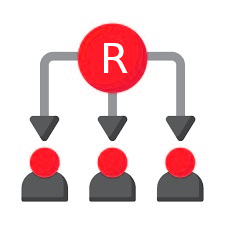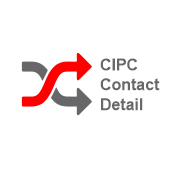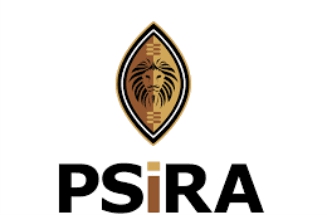
Company Registration
From R590 (3-5 Days)
Annual Returns
R190 + CIPC Fee (2 days)Starter Package
R1770
New Pty
Public Officer Appointment
Tax Clearance
Public Officer Appointment
Tax Clearance

Public Officer Appointment
From R690 (6 - 8 weeks)
Tax Clearance
R490 (1-7 Days)
Director
Sharehold Changes
R 850 (1-7 Days)
Tender Package
R3240
New Pty
Beneficial Ownership
Public Officer Appointment
Tax Cl + Bee Affi
CSD Registration
Beneficial Ownership
Public Officer Appointment
Tax Cl + Bee Affi
CSD Registration
Popular Packages
Tender
R3240
New Company
Bank Ready
Share Certificates
Beneficial Ownership
Public Officer Appoint.
Tax Clearance Cert.
BEE Affidavit
CSD Registration
Premium
R6405
New Company
Bank Ready
Share Certificates
Beneficial Ownership
Public Officer Appoint.
Tax Clearance Cert.
BEE Affidavit
CSD Registration
Standard Website
Google Map
SEO
Social Media Links
User Access Control
500 Business Cards
Build your own
Package
New Company
Beneficial Ownership
BEE Affidavit
VAT Registration
Share Certificates
Tax Clearance
Website
Logo Design - Professional
Trademarks
Import/Export
Business Plans
Domain Name Reg
Email Setup
Business Cards
More...
Industry Packages

Transport
R3240
New Company
Bank Ready
Share Certificates
Beneficial Ownership
Public Officer Appoint.
Tax Clearance Cert.
BEE Affidavit
CSD Registration
Public Officer Appoint.
Tax Clearance Cert.
BEE Affidavit
CSD Registration

Construction
R4490
New Company
Bank Ready
Share Certificates
Beneficial Ownership
Public Officer Appoint.
Tax Clearance Cert.
BEE Affidavit
CSD Registration
CIBD (1 Class Incld)
Public Officer Appoint.
Tax Clearance Cert.
BEE Affidavit
CSD Registration
CIBD (1 Class Incld)

Security (PSIRA)
R5720
New Company
Bank Ready
Share Certificates
Public Officer Appoint.
Tax Clearance Cert.
Mandatory Design Elements
Authorisation Resolution
Operational Readiness Resolution
Security Business Plan
Tax Clearance Cert.
Mandatory Design Elements
Authorisation Resolution
Operational Readiness Resolution
Security Business Plan
What our clients are saying

Michele3/3/2026


, other than for a Private Company whose shareholder is a Trust, the site is easy to navigate.
Van zyl2/3/2026


Steps to register is made practical and ease of use.
Thank you
2/3/2026


I couldn`t make changes to the Directors` details or number
2/3/2026


I couldn`t make changes to the Directors` details or number
2/3/2026


I couldn`t make changes to the Directors` details or number
Buhle14/2/2026


Easy to navigate as
Asanda13/2/2026


It is very easy to use.
Bright4/2/2026


Easy navigations which makes less hustle, and the videos are extremely helpful

Frequently Asked Questions
You will need a valid identity document for all Directors; a South African Department of Home Affairs issued ID card or green ID book or a valid foreign passport. Currently asylum seekers are excluded.
For foreign nationals; if you do not reside in South Africa, the company is required to have a South African physical registered address.
This is entirely dependent on CIPC and what their turnaround time is. Sometimes it can take a day but it usually doesn’t take longer than a week. For (Pty) Ltd and Standard NPCs the processing time is quicker as it is by far the bulk of companies registered so is automated at CIPC; Bespoke NPCs and Incorporations do take a little longer.
A Director runs the company; the Shareholder owns the company and they can be the same person. Minors (people under 18) may not be Directors of companies but they may be Shareholders. We do not recommend having minors as Shareholders as they do have functions to perform such as the appointing of Directors.
Yes, provided that they have valid passports and that the company has a physical South African address.
Yes, we register 3 main company types: a private company (Pty) Ltd, a personal liability company (Incorporation) and a non-profit company (NPC). A Pty has Directors and Shareholders, an Incorporation all Directors are required to be Shareholders as well, an NPC only has Directors and no Shareholders. An Incorporation is for professionals such as Accountants, Medical Doctors, Engineers etc. who wish to form a company.
No, you will need to apply to the TEU (Tax Exemption Unit) at SARS for Section 18A approval. None of the Directors of the registered entity may be related in any way; by blood, marriage or adoption or the application will be rejected until the Directors are changed.
Not right now. When the new Companies Act of 2008 became law in 2011, no new Close Corporations could be registered and the Act stated that existing CC’s would be converted within 10 years. That does not appear to have happened. It is however pretty straight forward to convert a CC to a Pty Ltd and currently takes about a week to process.
Company documents are those issued by CIPC which are a record of the information CIPC has on the company. All CK documents refer to Close Corporations; a CK1 is the founding statement and is the commonest document requested by institutions such as banks. CM documents refer to (Pty) Ltd companies registered before the Act changed in 2011. CIPC currently use CoR documents to refer to Ptys, Incorporations and NPCs.
Many government databases are automatically linked and synched. All companies registered with CIPC are automatically registered with SARS for Income Tax. The Tax Registration document which indicates the company details (name and registration number) is issued to the Directors and emailed directly to them.
Annual returns are a tax levied by CIPC for your company to remain registered with CIPC and comply with company law. Each year on the anniversary of your company’s registration the annual returns are due even if your company did not trade or made a loss. The annual returns dues are calculated on annual turnover. If you fail to settle your annual returns, penalties will be levied against the company. If the annual returns and penalties continue to remain outstanding, CIPC may start a Deregistration process. This is the point when bank accounts are frozen and fixed properties become assets of the lender. You may be able to restore the company if you are still trading. This is a time consuming and costly process which is best avoided.
Yes, absolutely. Depending on what you would like to do, you can change pretty much everything on a company after its registered as long as you follow the correct procedure. It is important to advise CIPC of any changes to your company such as address, financial year end and any Director changes.
Frequently Asked Questions
Tax Registration is the registration number of a company (or individual) as a taxpayer. Tax Clearance is an annual certificate to ensure that the taxpayer is up to date with their tax payments.
What is a Public Officer?
The Public Officer for a company is the person who is responsible for all matters relating to SARS and the company’s representative for SARS. In May 2021, SARS introduced tighter measures for companies interacting with SARS and will no longer process any SARS services for companies with no Public Officer appointed.
There are 2 types of VAT registration, mandatory and voluntary. VAT registration is mandatory once your company’s annual turnover has breached R1million in any 12 consecutive months. Failure to register for VAT with SARS has serious consequences. Voluntary VAT registration requires a minimum of R50 000 turnover in a 3 month period.
NO! We strongly advise against this as it is fraudulent and it is a criminal offence. VAT needs to be paid over to SARS and if you aren’t registered for VAT there is no mechanism to pay it. VAT fraud can be a huge headache for SARS and they take it very seriously.
PAYE stands for Pay As You Earn and is the tax collected by employers from employees on behalf of SARS. PAYE is deducted from employees’ salaries and paid by the company to SARS on a monthly basis. Companies need to register with SARS for their PAYE payments.
UIF is the Unemployment Insurance Fund and is the tax collected by employers from employees on behalf of the Department of Labour. UIF is deducted from employees’ salaries and paid by the company to SARS on a monthly basis. Companies need to register with SARS for their UIF payments.
SDL is the Skills Development Levy and is levied against company’s which has an estimated annual payroll of R500 000 or more. It is used for skills development and the company will need to register with a SETA to access funds or programmes for their employees.
Import and Export licenses are registered through SARS.
Donations to non-profit entities may carry a tax benefit for the donor which is a Section 18A Certificate. This allows the donor to claim a tax refund and encourages donations. Non-profit entities that are Public Benefit Organisations (PBO) can issue these certificates.
Frequently Asked Questions
CSD is the Central Supplier Database and it is compulsory to register on it if you want to tender on any government contract. In April 2016 National Treasury consolidated all government supplier information into a single database with the intention to establish a single database for up-to-date verified supplier information to be used by all government departments.
CIDB is the Construction Industry Development Board. If you are in the construction industry and would like to tender on government construction projects, you must register with CIDB since government regulations require all public construction tenders be awarded only to CIDB registered contactors. Once you are registered with CIDB you will be notified when relevant tenders open for application.
All businesses both new and existing should have a business plan as it forces critical thinking on each aspect of your business, some of which you may not be familiar with or want to avoid. It provides a framework to consider opportunity and challenges which could be the difference between success and failure.
A trademark gives your brand name or logo legal protection from any competitor who copies it.
The most common types of trademarks are word marks and logo’s. A wordmark is usually a distinct text-only typographic treatment of the name of a brand. A logo is a graphic representation or symbol of a company name. The word KFC for example, is both a word mark and a logo. KFC is the word mark and the bucket is the logo

CLICK HERE
for all Services
for all Services




























